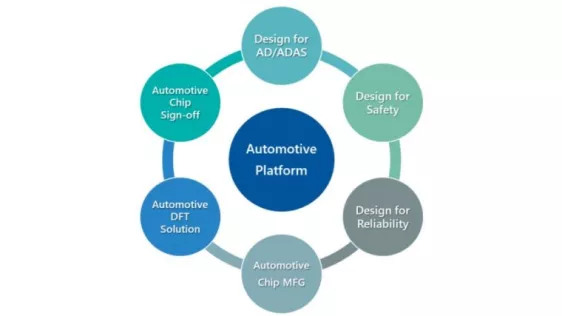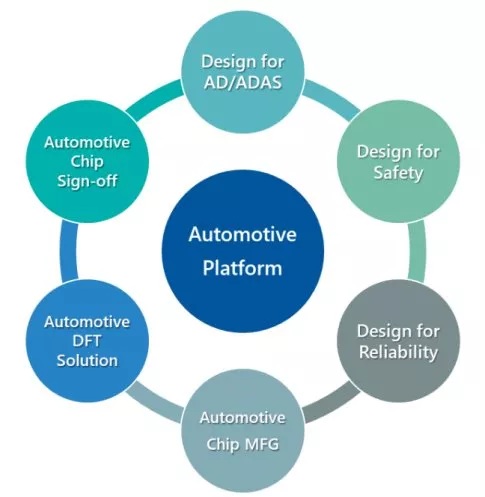ASIC platform targets automotive chiplets
Alchip Technologies in Taiwan has launched an ASIC and chiplet platform that targets the specialist needs of automotive.

 By Nick Flaherty, eeNews Europe (November 23, 2023)
By Nick Flaherty, eeNews Europe (November 23, 2023)
The Automotive platform streamlines the ASIC process for chip, chiplet and module designs but is also of interest to the car makers who have been looking at their own semiconductor design operations following the chip shortages.
Alchip says it is seeing significant interest from companies across Europe, Japan, the United States and Asia. The company has built its reputation as a high-performance ASIC leader through its advanced 2.5D/3DIC design, CoWoS andchiplet design and manufacturing management.
The platform consists of six modules: Design for Autonomous Driving (AD)/ Advanced Driver Assistance System (ADAS), Design for Safety, Design for Test, Design for Reliability, Automotive Chip Sign-off, and Automotive Chip Manufacturing (MFG) Service.

To read the full article, click here
Related Chiplet
- Interconnect Chiplet
- 12nm EURYTION RFK1 - UCIe SP based Ka-Ku Band Chiplet Transceiver
- Bridglets
- Automotive AI Accelerator
- Direct Chiplet Interface
Related News
- Renesas moves to chiplets for automotive processors
- DreamBig World Leading "MARS" Open Chiplet Platform Enables Scaling of Next Generation Large Language Model (LLM), Generative AI, and Automotive Semiconductor Solutions
- Intel to Acquire Silicon Mobility, Intel Commits to Open Automotive Chiplet Platform
- Axelera plans AI chiplets for automotive
Latest News
- Where co-packaged optics (CPO) technology stands in 2026
- Qualcomm Completes Acquisition of Alphawave Semi
- Cadence Tapes Out UCIe IP Solution at 64G Speeds on TSMC N3P Technology
- Avnet ASIC and Bar-Ilan University Launch Innovation Center for Next Generation Chiplets
- SEMIFIVE Strengthens AI ASIC Market Position Through IPO “Targeting Global Markets with Advanced-nodes, Large-Die Designs, and 3D-IC Technologies”